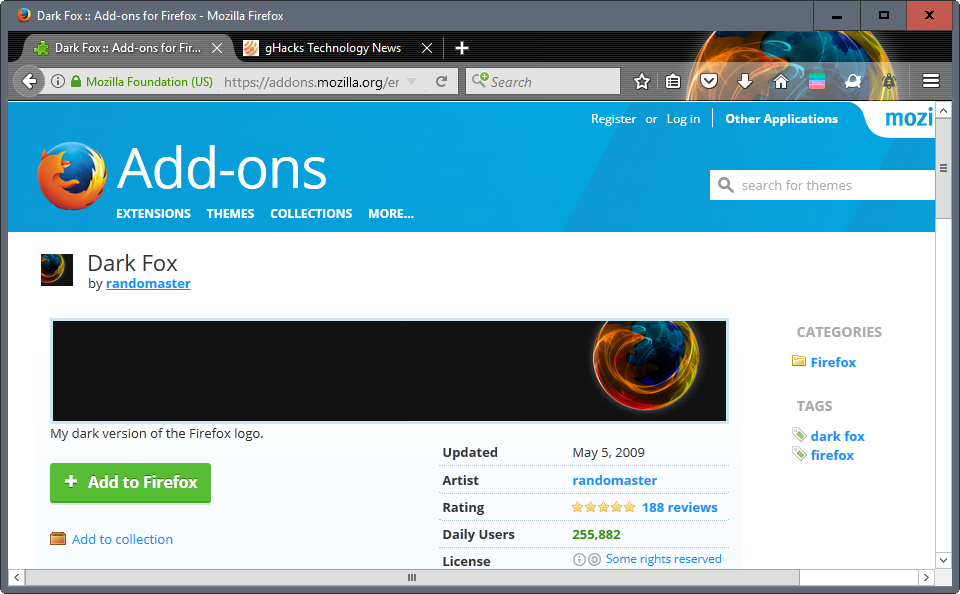Mozilla reveals plan for themes in Firefox
Last year, Mozilla announced major changes that it planned to implement that would change Firefox in several fundamental ways.
The deprecation of Firefox's long-standing add-on system in favor of WebExtensions is probably the change that will have the largest impact on the Firefox browser and users.
The main reason for this is that Mozilla plans to remove support for classic add-ons in Firefox by the end of 2017. Any add-on that is not recreated using WebExtensions APIs won't work in Firefox anymore when the change hits the browser.
Legacy add-ons are on their way out, and this includes full or complete themes as well as any add-on created using development technologies other than WebExtensions.
Some developers announced already that they will quit developing add-ons for Firefox, others criticized Mozilla for making the cut early as some APIs are still in development, and others might never make the cut.
Firefox users will gain access to the majority of Chrome extensions in return however.
Mozilla's plan for themes in Firefox

In, Improving Themes in Firefox, Mozilla's Justin Dolske, reveals Mozilla's plan to go forward with themes in the Firefox web browser.
It should not come as a surprise that full themes are still on their way out. Mozilla's main idea is to improve lightweight themes so that theme creators have more options in regards to capabilities and changes that these themes can make to the Firefox interface.
This won't reach full theme levels, but it will be more powerful than the light changes that lightweight themes may make right now.
Dolske reiterates that complete themes have to go because of compatibility issues. He notes that only 60 complete themes are currently compatible with the current Firefox release, while the remaining 440 complete themes are not. Another point that he makes is that complete themes are not as popular as lightweight themes.
While compatibility or sheer numbers is certainly one reason for that, one should note that Mozilla put the focus on lightweight themes on AMO and when it talked about themes. This meant that lightweight themes got the bulk of exposure which in turn meant more installs by users.
Mozilla's plan is to extend the capabilities of lightweight themes in the browser. Mozilla plans to implement popular full theme capabilities so that they become available to lightweight theme designers.
At its core is a JSON manifest, mapping defined property names to the underlying UI elements. Theme developers will be able to control a variety of styles on these properties (such as colors, icons, and background images), and Firefox will ensure the manifests are supported in a stable and well-documented way across future releases and UI updates. These themes will be layered on top of the default Firefox appearance, so you can create a trivial theme that just changes one property, or a complex theme that changes all of them.
Mozilla set a number of goals besides that. It wants feature parity with google Chrome themes, make sure that lightweight themes don't regress startup and browser window opening times, and that themes may also manipulate Firefox about pages.
You can check out the engineering plan for the future of Firefox theming here.
Now You: What's your take on the development?